Spaceport Cornwall: From pasty memes to rocket launch
- Published
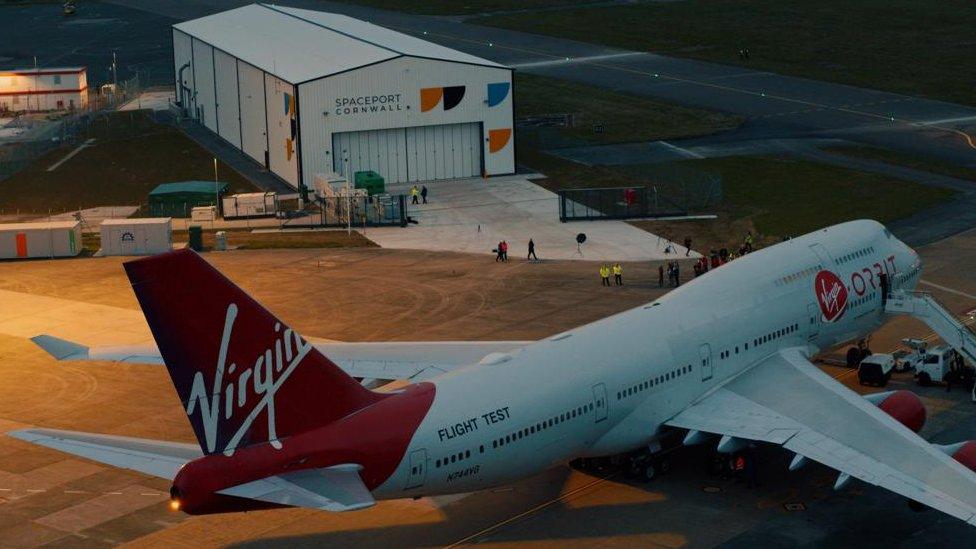
Cosmic Girl arrived at Spaceport Cornwall in October
In the early days of Cornwall's bid to build a spaceport "we got laughed at", Spaceport Cornwall boss Melissa Thorpe recalls.
"There were memes of pasties and cream teas being sent into space... but here we are."
The first orbital space launch from the UK is due to take off on Monday from Cornwall Airport Newquay, eight years after it was shortlisted as a potential spaceport site.
Virgin Orbit's jumbo jet - Cosmic Girl - will take off with the LauncherOne rocket attached beneath its wing.
It will fly up to 35,000ft - about 10.5km - where the rocket will detach and blast off at high speed, putting nine satellites into orbit at an altitude of 555km.
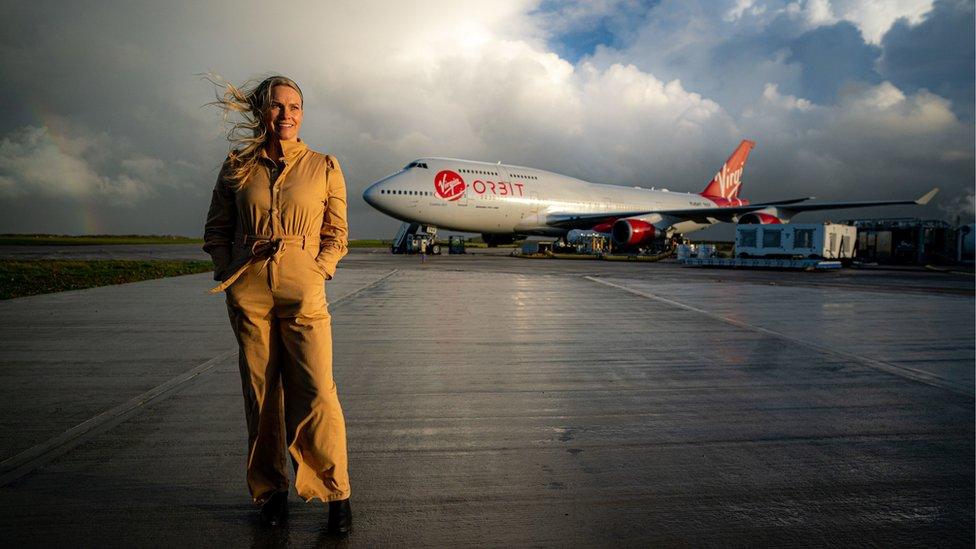
Melissa Thorpe believes the first launch will act as a catalyst for the UK space sector
Ms Thorpe said: "It is really hard to do - it is rocket science, and the longer we wait the more excited I get.
"It is going to feel so good and quite emotional for myself and my team when it does happen."
What it means for Cornwall
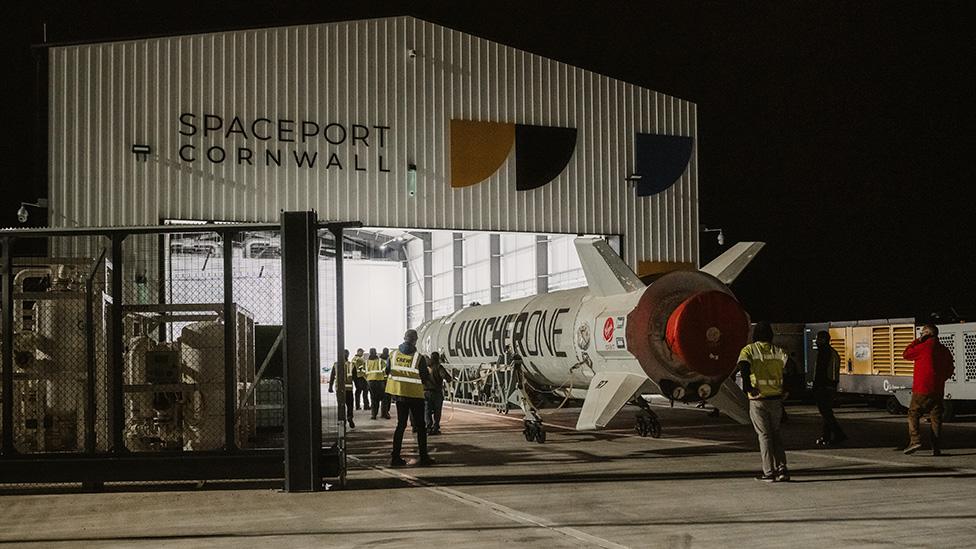
The rocket, called LauncherOne, is just over 66ft (20m) in length
"All the way through there has been a fair amount of scepticism," Louis Gardner, the Cornwall Councillor with current responsibility for the project said.
Cornwall Council has put £12m into the spaceport project, alongside £7.85m from central government.
Mr Gardner said: "By investing in the spaceport we have not just invested to launch rockets into space. We have invested in a whole industry."
He said there are now 150 jobs across Cornwall that exist as a direct result of the spaceport, contributing about £200m annually to the local economy.
"We fully expect that to increase over the next five years, exponentially. Businesses are now interested in moving to Cornwall as a direct result of the spaceport."
The spaceport itself is projected to employ 50 people in the next three years, and 250 businesses turned up at a recent open day event.
"The average job on the spaceport is in excess of £45,000 per year, almost double the Cornish average," Mr Gardner added.
Why Cornwall?
The doubters, both inside and outside Cornwall, wondered whether it was the best place to play a leading role in the UK's space industry.
But it is a place with a proud history of technological innovation.
In the 18th and 19th Centuries, Cornwall was the global centre of tin and copper mining.
The first trans-Atlantic wireless signal was sent by Guglielmo Marconi from Poldhu in Cornwall in December 1901.
This was 30 years after a cable was brought ashore at Porthcurno that would allow the first messages to be sent to and from India.
"For nearly 200 years we forgot that Cornwall was a world leader in science and innovation, but we are remembering that now," Mr Gardner said.
The space sector in Cornwall
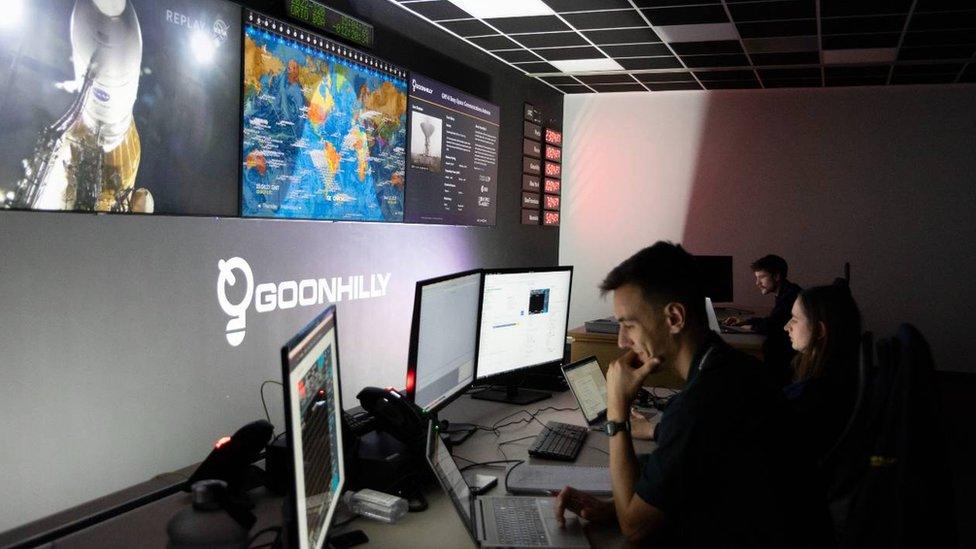
Graduates will help monitor the Amber satellite from the Operational Control Area at Goonhilly
Cornwall's space cluster is already buoyant, with more than 70 businesses linked to the sector.
Goonhilly Earth Station, about 35 miles (56km) south west of Spaceport Cornwall, is a globally renowned site that has been at the forefront of the satellite communications industry for more than 50 years.
Recently it had a key role in Nasa's Artemis moon mission and it has been involved with the spaceport from the beginning.
14Years as a passenger plane with Virgin Atlantic
8,265flights completed as G-VWOW
2015acquired for use as an airborne launch vehicle
2021completed first successful launch of LauncherOne rocket
The team there has designed and built a portable operations cabin that will be on the apron of the runway on Monday, with a 1.8m (6ft) antenna, from where the rocket, LauncherOne, will be tracked.
Alongside the support for Virgin Orbit, Goonhilly has also helped prepare one of the nine satellites on board, the IOD-3 that will monitor marine activities such as illegal fishing and piracy.
There are companies in Cornwall supplying hardware linked to space flight, and others monitoring and using the data gathered.
The spaceport is developing a Centre for Space Technologies, which has already integrated the satellites for this mission into the rocket, and will provide a Research and Development facility.
The UK Space Agency said nationally the sector is worth £16.5bn annually and employs 47,000 people.
The expert view
Dhara Patel, a space expert from the National Space Agency, said the proximity of facilities like Goonhilly was key in making Cornwall a good location.
"What made Spaceport Cornwall a really attractive place is that it is in the South West which has a really lively space cluster.
"It's full of businesses, research centres, manufacturing facilities.
"Things like transport infrastructure are in place - you want to be well connected but you want to be remote enough that you are not around densely populated areas - if there was a launch failure you wouldn't want people near there."
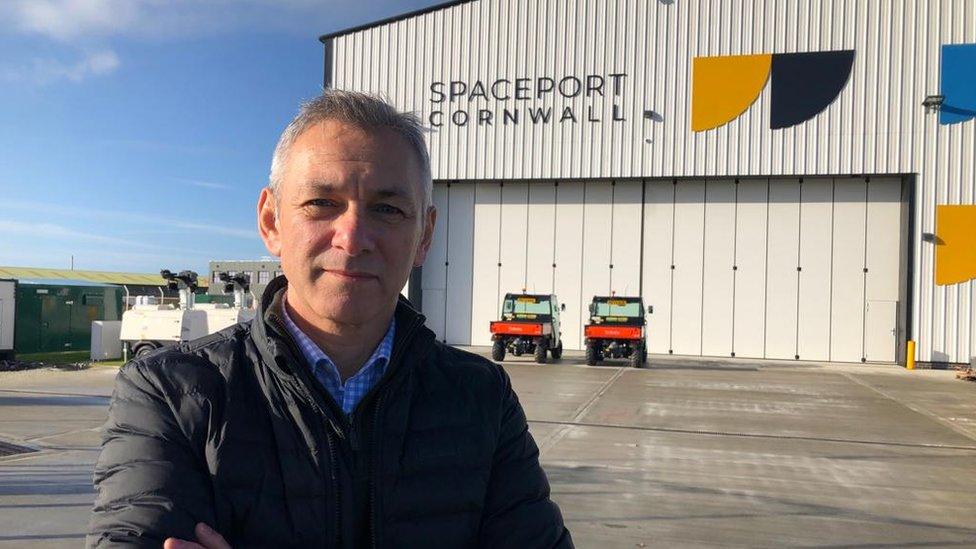
Ian Annett from the UK Space Agency said the first launch "feels like a national moment"
The spaceport also has access to the 2.7km (1.7 mile) runway at Cornwall Airport Newquay, one of the longest in the UK.
The runway is capable of handling aircraft like Cosmic Girl and heads straight out to sea, making it safer than many other options.
The rocket
70feet (21m) in length
17,500mph (28,162 kph) maximum speed
5seconds between release and ignition
500kg (80 stone) payload limit
500km (310 miles) typical altitude
Ian Annett, deputy chief executive of the UK Space Agency, said being on the brink of launch was "immense" and "feels like a national moment".
"Cornwall was on the front foot. They put the investment in.
"Cornwall had that foresight eight years ago to start investing and start creating the infrastructure around a spaceport. They just happened to be the first ones to get there."
What next?
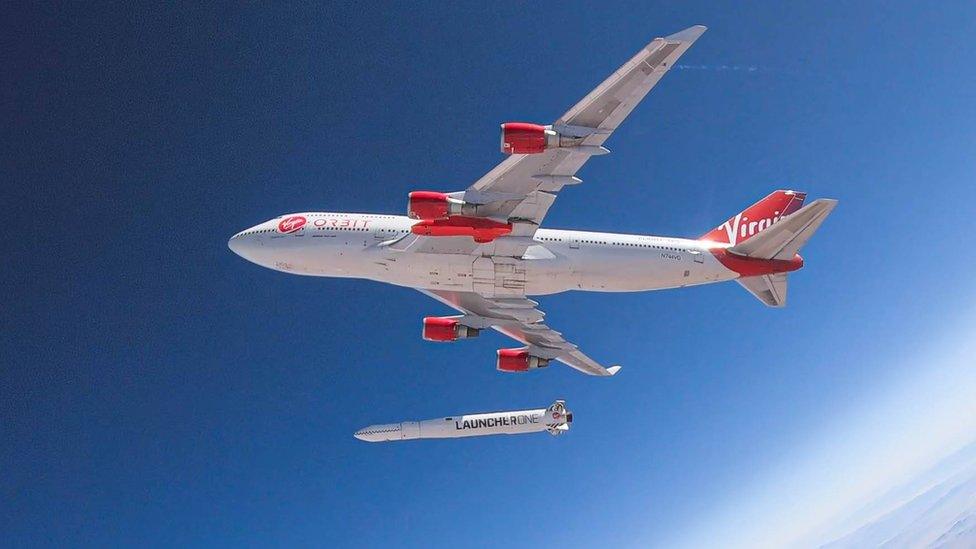
The LauncherOne rocket will be released from Virgin Orbit's Cosmic Girl
The existence of a UK spaceport is ground-breaking, but with more coming in remote parts of Scotland and Wales in particular, the Cornish team is keen to build on momentum.
It plans to have up to 12 launches a year over the next five years, and says it is heavily focussed on sustainability with a goal to be the world's first net zero spaceport.
Ms Thorpe said it was important momentum was built on.
"It's not just the launches, but all the other amazing businesses being attracted to the site.
"We are really using this as a catalyst to attract other satellite and space businesses."
The spaceport has partnered with Virgin Orbit for this mission, and will continue to have a relationship with the company, but is seeking other partners also.
The council is counting on business growth, and has already been contacted by satellite manufacturers interested in setting up in Cornwall.
The next generation
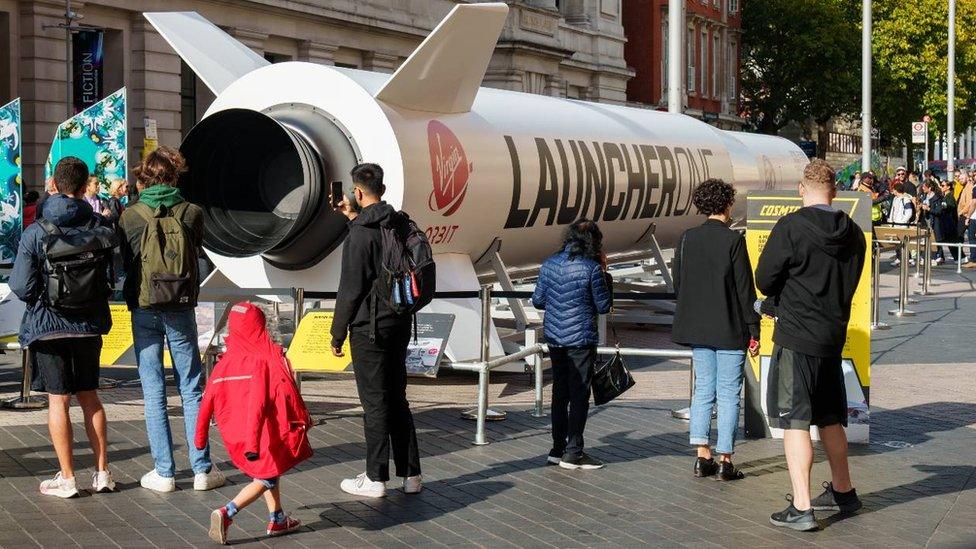
A life-size replica of Virgin Orbit's LauncherOne on display at the Science Museum in London
Every school in Cornwall has been visited by spaceport representatives, and giving opportunities to young people has been an important part of the mission.
Mr Gardner said: "For generations now we have probably had our children at a point where they think and have been told that if they want a decent job in science or technology or engineering, they have got to leave Cornwall and go somewhere else.
"The spaceport now is one of the things that demonstrates to our children that that is not the case anymore.
"It is genuinely a good news story and genuinely non-political... it's a real Cornish success story."

Follow BBC News South West on Twitter, external, Facebook, external and Instagram, external. Send your story ideas to spotlight@bbc.co.uk.
Related topics
- Published9 January 2023
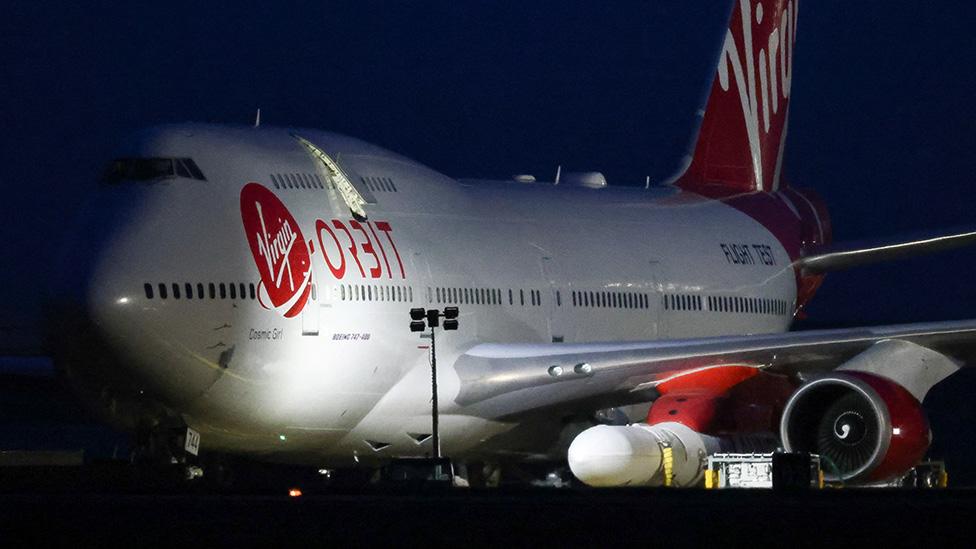
- Published21 December 2022
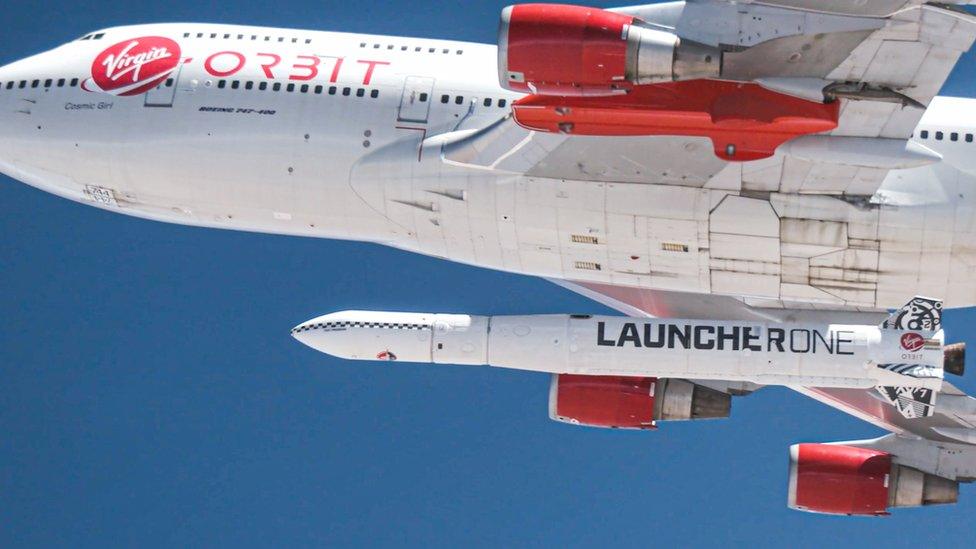
- Published26 November 2019
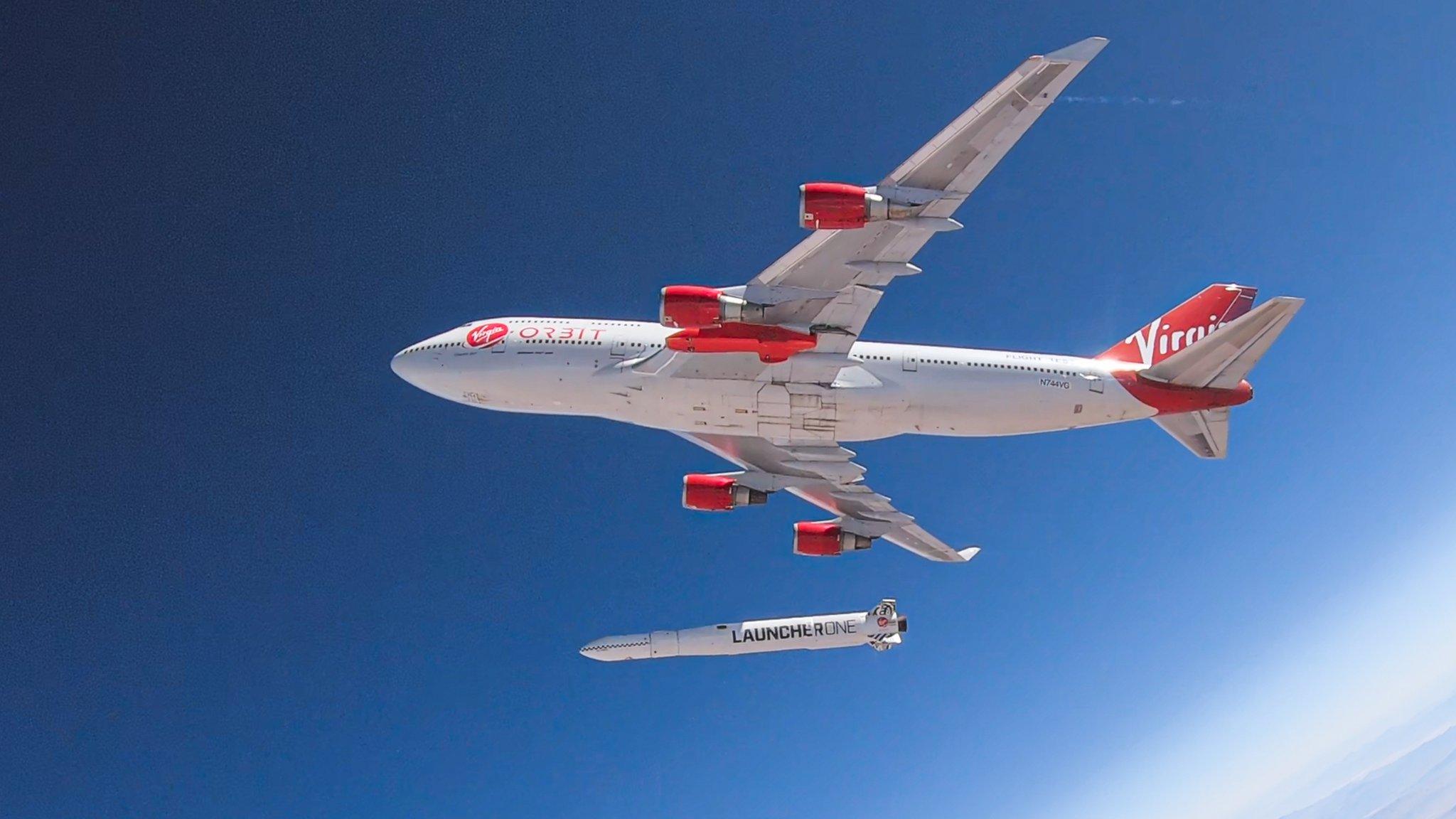
- Published8 November 2022
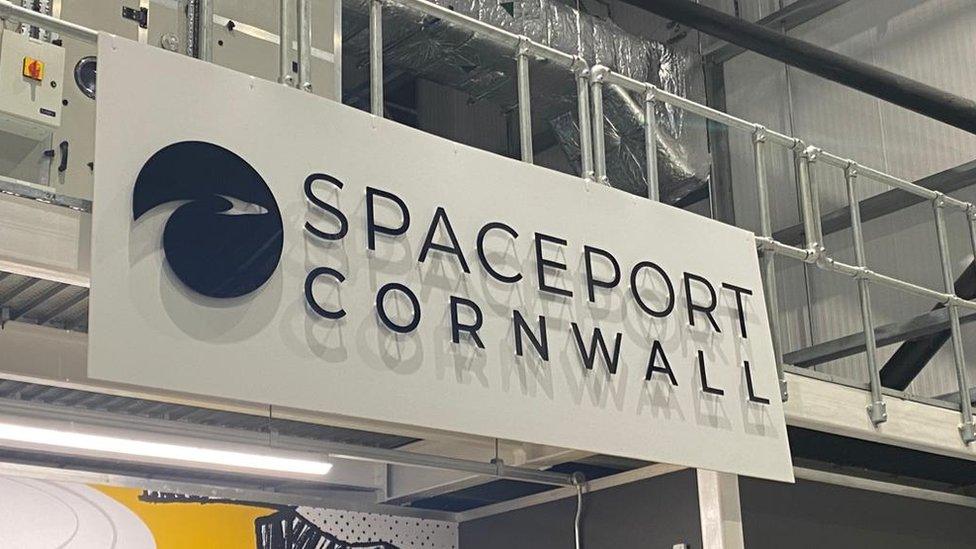
- Published8 November 2022
- Published15 October 2022
- Published8 December 2022
- Published8 November 2022
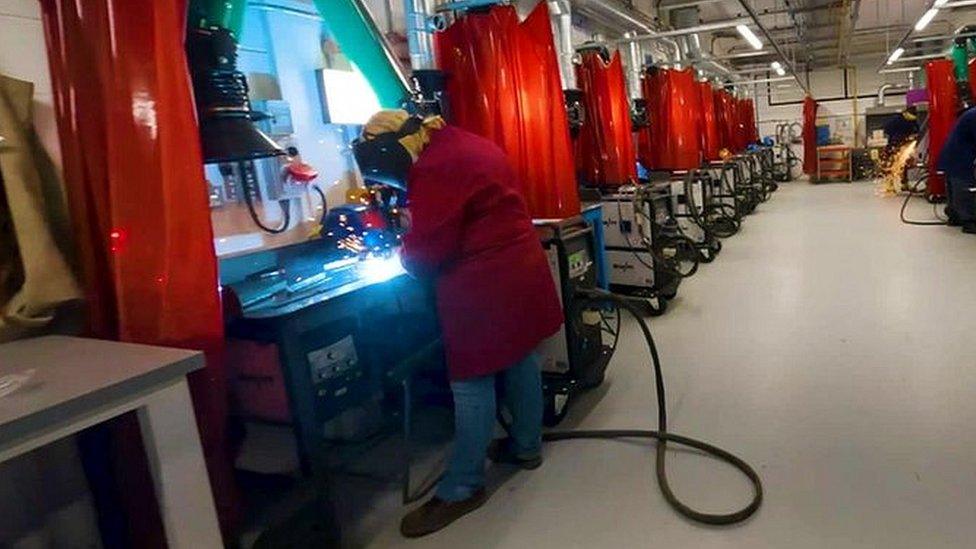
- Published4 November 2022
